Metro Washington
Chapter
2021-22 MWC Scholars

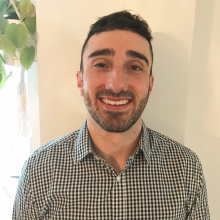
Devin D. Palmer
Mars Foundation Scholar
- 1st Year Scholar
- PhD Candidate, Interdisciplinary Program in Neuroscience
- Research to understand the “road map” by which seizures spread in the brain. Using high spatial and temporal resolution methods, Devin will record, target and manipulate neuronal activity within defined regions of the brain to influence seizure initiation, propagation and cessation.
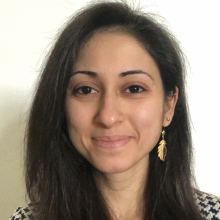
Raneen A. Rahhal
Forster Family Foundation Scholar
- 1st Year Scholar
- PhD Candidate, Tumor Biology
- Research involves integrating high-throughput and spatial technologies to discover interactions between tumors cells and the microenvironment that promote metastasis. This new discovery approach will illuminate our understanding of tumor evolution and has the potential to identify new drug targets for the treatment of patients with metastatic cancer.
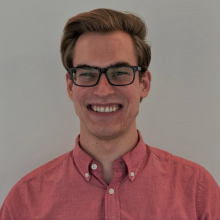
Joel A. Swanson
Forster Family Foundation Scholar
- 1st Year Scholar
- PhD Candidate, Chemistry
- Research involves the europium chalcogenides. Europium chalcogenids are intrinsic magnetic semiconductors that have highly coupled magnetic, electronic and optical properties. Investigation of this coupling on the nanoscale is key to the integration of exciting properties such as spin filtering and magnetoresistance into the next generation of electronics.

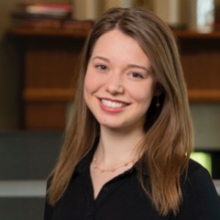
Megan S. Anderson
ARCS MWC Chapter Scholar
- 1st Year Scholar
- PhD Candidate, Mechanical and Aerospace Engineering
- Research uses ultrasound to measure the mechanical properties of biocompatible hydrogels, developing a non-destructive characterization method. Ultrasound is also used to vaporize droplets in those hydrogels, exploring a non-invasive payload delivery method
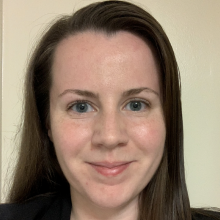
Ashley M. Frankenfield
ARCS MWC Chapter Scholar
- 1st Year Scholar
- PhD Candidate, Chemistry
- Research focuses on the development of new analytical chemistry methods using mass spectrometry techniques to identify and quantify thousands of proteins simultaneously in biological systems, and the application of these methods to discover candidate disease biomarkers and molecular mechanisms underlying neurodegenerative diseases.
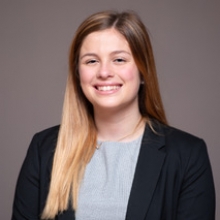
Kathryn Jaroaszynski
ARCS MWC Chapter Scholar
- Undergraduate Scholar
- Biomedical Engineering
- Research explores the use of thermography for the early detection of breast cancer. Image analysis techniques are used to assess the relative temperature differences between breasts overtime in both patients and volunteers to explore the cooling patterns of the breasts as well as the ability to locate the tumorous breast region in patients.

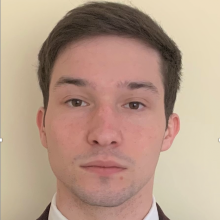
Phillippe P. Baron
John and Patricia Anderson Scholar
- Undergraduate Scholar
- Chemical and Biomolecular Engineering
- Research on the use of nonuniform electric fields, and thus feedback control applied to voltage, to form highly ordered particle nanostructures out of super-elliptical colloidal particles. Particle systems are studied extensively through computer simulations.
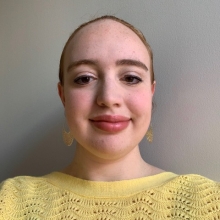
Autumn G. Hughes
Willard and Marilynn Sweetser Scholar
- Undergraduate Scholar
- Biomedical Engineering, Computer Science
- Research in haptics and surgical robotics, developing a user interface for surgical trainees to use haptic feedback devices and automated skill assessment algorithms while practicing robot-assisted surgery.
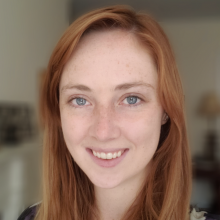
Ashley L. Keiman
Endowment Scholar
- 1st Year Scholar
- PhD Candidate, Chemical and Biomolecular Engineering
- Research focuses on developing tools for studying the structure of human tissue in 3D, using image processing and deep learning to reconstruct serially sliced tissue samples. Applications include investigation of the 3D structure of pancreatic cancer, changes to skin as the stomach stretches during pregnancy, and immune response to developing tumors.
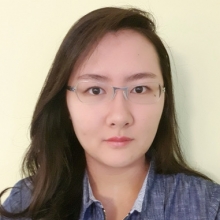
Jessica Su
Willard and Marilynn Sweetser Scholar
- Undergraduate Scholar
- Biomedical Engineering
- Research in robot-assisted ultrasound imaging, using visual servoing to control a robot to hold an ultrasound probe and automatically track a needle tip in ultrasound-guided needle insertion procedures.
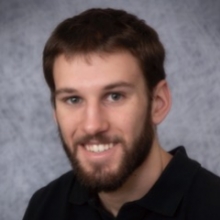
Derek W. VanDyke
ARCS MWC Scholar
- 1st Year Scholar
- PhD Candidate, Chemical and Biomolecular Engineering
- Research focuses on combining cutting-edge technologies from structural biophysics, molecular engineering, and translational immunology to engineer antibodies that can be used as targeted therapeutics for autoimmune diseases.
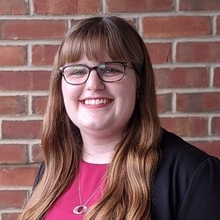
Alycen E. Wiacek
JCM Foundation Scholar
- 1st Year Scholar
- PhD Candidate, Electrical and Computer Engineering
- Research applies novel signal processing and machine learning techniques to breast ultrasound in order to develop new algorithms that will improve the diagnosis of breast cancer.

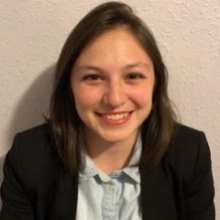
Micaela L. Everett
Danaher Corporation Scholar
- 1st Year Scholar
- PhD Candidate, Biomedical Engineering
- Research involves engineering new diagnostic tests that can sensitively detect viruses (including SARS-CoV-2 and Hepatitis C) quicker, cheaper, and overall simpler than current gold standard detection methods. Micaela aims to design these sensors to be more point-of-care friendly in the sample preparation steps, the chemical assay itself, and the readout method.
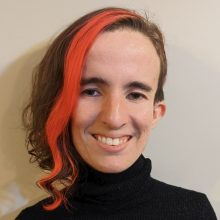
Marina Knittel
Endowment Scholar
- 1st Year Scholar
- PhD Candidate, Computer Science
- Studies fairness, bias, and scalability in hierarchical clustering, an important machine learning technique that creates tiered groupings of data and has numerous applications including medical imaging, phylogenetics, and system diagnosis. Scalability, achieved with massively parallel computing, ensures efficiency on massive datasets.
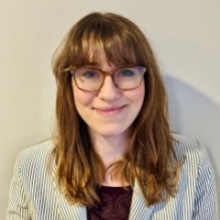
Julia C. Sell
ARCS MWC Scholar
- 2nd Year Scholar
- PhD Candidate, Physics
- Research focuses on using light, with added momentum, to interact with matter in a way that is inaccessible in traditional electronics. The goal is to show the broad applicability of this technique in manipulating states to enhance semiconductor device engineering capabilities and open new avenues of research in light-matter interaction and quantum computation.

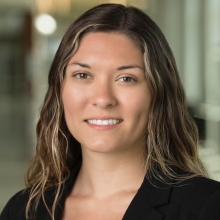
Chelsea L. Dandridge
ARCS MWC Scholar
- 1st Year Scholar
- PhD Candidate, Engineering Systems and Environment
- Research uses machine learning modeling approaches with remote sensing data with locally provided data at a regional scale to evaluate landslide hazard risk and susceptibility factors in Southeast Asia as well as generate landslide susceptibility maps using event inventories mapped from high-resolution satellite imagery for regional land use management and hazard mitigation
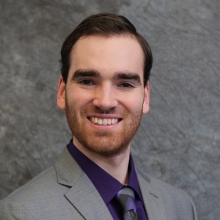
Miller T. Eaton
ARCS MWC Scholar
- 1st Year Scholar
- PhD Candidate, Physics
- Research on advancing theoretical and experimental methods to generate and characterize exotic quantum states of light using currently available quantum optics technology, such as nonlinear optics, single-photon sources, and photon-number-resolved detection. These are vital for quantum information applications in secure quantum communication, quantum-enhanced sensing, and universal, fault-tolerant quantum computation.
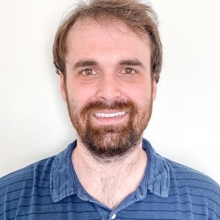
Trent T. Weiss
McNichols Family Foundation Scholar
- 1st Year Scholar
- PhD Candidate, Computer Science
- Fully autonomous vehicles require correct decision-making under unexpected traffic situations such as another vehicle swerving across lanes without any indication, or unexpected braking. Working to develop autonomous systems capable of navigating safely through complex and high-speed environments, with limited observability, while coping with events
